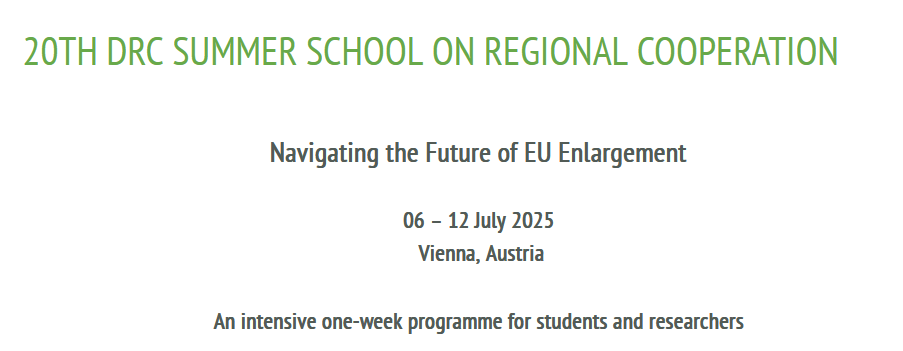An intensive one-week programme for students and researchers
Young researchers with a scientific background and/or a strong interest in deepening their knowledge of developments in central, Eastern, and South-Eastern Europe have the opportunity to present their research related to the Danube Region and European integration.
General topics expected to be explored during the summer school
- Shifting Geopolitical Realities
With U.S. President Trump back in office, Europe’s geopolitical landscape is shifting once again. The U.S. can no longer be seen as the reliable partner it once was. While this may present an opportunity for Europe to take greater control and deepen internal cooperation, it also brings major challenges. How can Europe boost its security and military capabilities, also regarding the EU’s mutual defense clause and the newly presented ‘Rearm Europe’ plan? Can Europe support Ukraine on its own and stand firm against Russia? Will the EU act strong and united, positioning itself as an independent global actor amid rising far-right tendencies and growing polarization within its own member states? And what crucial role will EU enlargement play in shaping this new reality? - Rethinking Enlargement
European Commission President Ursula von der Leyen has called EU enlargement a geopolitical imperative, stressing the need for a larger and stronger Union to enhance security, stability, and democracy in Europe. However, the current enlargement process has become slow and ineffective, highlighting the urgency for reform. Various models have been proposed, including economic integration, staged accession, the European Political Community (EPC), and the Greater European Council (GEC). How do these models envision enlargement and the future of EU decision making? What are their advantages, what are their disadvantages? And which of them could gain consensus among member states and be effectively implemented? - Engaging Citizens
Public support and understanding are crucial for the legitimacy and success of EU decision-making. This applies also to the EU enlargement process, which requires broad acceptance in both member states and candidate countries. Yet citizen engagement often remains limited. Many people feel their voices are not heard, and Brussels seems like a distant entity. How can citizens become more involved in EU decision-making? How do they perceive enlargement, and how can their voices be better integrated into the process? Which strategies can bridge the gap between EU institutions and the public, making enlargement more inclusive, democratic, and responsive to citizens’ concerns and ideas? - Growing sustainably
As the EU takes action to achieve its climate goals, the candidate countries will have to meet new sustainability standards. Yet significant gaps remain in energy legislation and environment policy. The Western Balkans suffer from the worst air pollution in Europe, while the drive for critical raw materials is the subject of geopolitical debates and civil society protests. At the same time, the region is particularly vulnerable to the effects of climate change and energy poverty. A green economy would require significant investment in renewable energy and infrastructure, but attracting sustainable financing remains a challenge. Which reforms can accelerate the green transition? How can the region reduce its dependency on fossil fuels while ensuring energy security? And what policies are necessary to balance economic development with environmental sustainability?
IMPORTANT NOTE: Research topics should align with the themes above, but relevant contributions beyond these areas, as long as they relate to EU enlargement, are also welcome.
For more information, please consult the source page of this announcement: https://www.drc-danube.org/summer-school/

